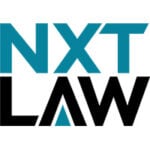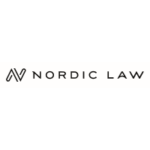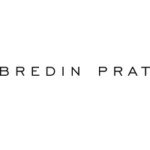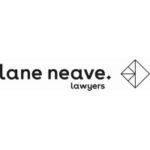-
Please provide a high-level overview of the blockchain market in your jurisdiction. In what business or public sectors are you seeing blockchain or other distributed ledger technologies being adopted?
Known globally as the ‘Start-Up Nation,’ Israel’s reputation for innovation extends into the blockchain and cryptocurrency sectors. Israeli companies and entrepreneurs are highly active across various segments of the blockchain space, establishing a strong international presence. Israel’s blockchain sector has more than 174 companies, employing around 3,800 people, according to data from the Israeli Crypto Blockchain & Web3 Companies Forum. These companies work in areas such as crypto investments, algorithmic trading, technical infrastructure, regulatory technology (RegTech), cybersecurity, and other innovations.
For the general public, Israeli brokers have served local users for more than a decade. Israeli consumers have also quickly adopted international platforms for buying and selling crypto assets. The Israeli Bitcoin community emerged as early as 2011, with the founding of the Israeli Bitcoin Association, a nonprofit aimed at promoting Bitcoin and other cryptocurrencies.
However, Israeli laws and regulations related to cryptocurrencies have been slow to evolve. Several segments of the cryptocurrency industry still operate without detailed regulatory oversight, and Israeli banks have been extremely cautious in offering services to crypto-related ventures and individuals involved in the cryptocurrency space.
Key events in the past year that have shaped Israel’s cryptocurrency landscape include:
- In a significant development, Bits of Gold, a licensed crypto broker, announced a pilot project for a New Israeli Shekel stablecoin called BILS, built on the Solana blockchain. This project highlights the growing interest in stablecoins within Israel’s financial ecosystem
- The Bank of Israel released new guidelines intended to enhance interactions between cryptocurrency holders and financial institutions, although tangible results have been limited so far.
- The Israeli Supreme Court ruled that banks are not prohibited from engaging in cryptocurrency transactions with the public but emphasized the need for more defined legislative guideline. To date, no Israeli bank has sold cryptocurrency directly, though some banks offer trading in Bitcoin ETFs.
- Following the Hamas attack on October 7, 2023, and the subsequent war, Israel’s crypto community raised substantial funds in cryptocurrency for philanthropic efforts. Israeli crypto firms also joined efforts to track and report potential terror financing.
- The Israeli Tax Authorities introduced a new protocol to facilitate tax payments on crypto-related profits when banks refuse to process the necessary transfers.
- Tectona became the first publicly traded Israeli company, and the fifth overall, to obtain a crypto services license from the Israeli Capital Markets Authority.
These developments underscore the growth and increasing regulation of Israel’s blockchain and cryptocurrency sectors, even as the legal and financial framework continues to evolve.
-
Please outline the principal legislation and the regulators most relevant to the use of blockchain technologies in your jurisdiction. In particular, is there any blockchain-specific legislation or are there any blockchain-specific regulatory frameworks in your jurisdiction, either now or envisaged in the short or mid-term?
Israeli regulation on cryptocurrencies and digital assets has gradually adapted to the technological advancements and widespread adoption of blockchain technologies. In 2016, Israel formally addressed cryptocurrencies by requiring brokers and custodians of virtual currencies to obtain a license issued and supervised by the Capital Market, Insurance, and Savings Authority (CMA) under the Supervision of Financial Services (Regulated Financial Services) Law. This law introduced strong consumer protections, security measures, and oversight powers for the CMA.
Although the regulatory framework was established in 2016, the first cryptocurrency license was issued only in September 2022, with only four more granted since. For over a decade, Israeli brokers have supported local users in their cryptocurrency transactions. In addition, consumers in Israel have rapidly embraced international platforms for trading digital assets. In recent years, the licensing process for financial services, including crypto, has become more efficient.
The CMA is not the sole regulator in this space. The Israel Securities Authority (ISA) oversees security tokens and is pushing legislative changes to regulate digital assets more effectively, covering activities such as trading platforms, investment advice, and fund management. The ISA also regulates the Israeli Stock Exchange, which lists two companies involved in cryptocurrency activities, one of which recently received a crypto license from the CMA.
The Bank of Israel (BOI) also plays a key role, overseeing local banks, which have been hesitant to deal with crypto-related funds. New BOI orders aim to address this, with limited success. The BOI is exploring the infrastructure for a Central Bank Digital Currency (CBDC), though no decision has been made. If a privately issued stablecoin pegged to the Israeli shekel gains traction, it would likely fall under BOI supervision.
Israel has also made progress on taxation of cryptocurrency profits. In November 2021, Israel implemented an anti-money laundering (AML) order aligning with FATF standards. The Israel Money Laundering and Terror Financing Prohibition Authority leads these efforts, imposing strict know-your-customer (KYC) requirements and reporting obligations.
The licensing process for financial service providers under the Supervision Law aims to foster competition and ensure robust oversight to prevent illegal activities. The CMA manages the licensing process, requiring applicants to meet strict financial and operational standards, including equity of at least NIS 1 million and thorough assessments of key stakeholders. Failure to comply can result in severe penalties and sanctions.
While regulations cover virtual currencies and transactions, Israeli regulators have yet to issue specific guidance on decentralized finance (DeFi) or decentralized autonomous organizations (DAOs). However, the ISA has proposed amendments to the Securities Law, applying securities regulations to digital assets with characteristics similar to traditional securities.
-
What is the current attitude of the government and of regulators to the use of blockchain technology in your jurisdiction?
In Israel, the government has shown a keen interest in exploring and potentially integrating blockchain technology across various sectors, including financial services and government operations. Consequently, several initiatives and task forces have been established to examine the potential benefits and challenges of this technology. One notable initiative is the Bank of Israel’s establishment of a committee tasked with drafting regulations to oversee currency stability within the country. The principles outlined in their document aim to regulate the use of stablecoins in Israel, ensuring that such activities are conducted with appropriate risk management and that consumer protection and stability requirements are met.
Additionally, the Israel Securities Authority has set up a committee to evaluate the regulation of decentralized cryptocurrency offerings to the public. This committee assessed how the Securities Law 5728-1968 applies to offerings and issuances made to the Israeli public using distributed ledger technology. The committee’s findings include: (a) creating a specific disclosure framework for issuers of cryptographic assets, drawing from both local and international regulatory experience; (b) establishing a “regulatory sandbox” to facilitate experimentation with cryptographic asset issuances; and (c) exploring the possibility of a dedicated trading platform for cryptographic assets classified as securities and considering a crowdfunding-like model for such ventures.
Regulatory Sandbox
In recent years, discussions in Israel have focused on the 2021 bill aimed at encouraging technological development within the financial sector. The proposed sandbox serves as a testing ground for fintech companies to trial their business models and assess their impact on consumers. The bill outlines the formation of a committee to oversee this program, provides regulatory pathways for companies seeking approval, and establishes guidelines for protecting potential customers and investors.
Recently, within this established framework, our firm has actively guided Bits of Gold Ltd. through a pilot program for a stablecoin within the regulatory sandbox. This initiative is governed by specific guidelines from the Capital Market Authority and operates under its ongoing supervision.
As digital currencies become more integrated into Israel’s regulatory framework, it is anticipated that a growing number of entities will exert both influence and regulatory control over these currencies. This development is expected to significantly shape the conversation surrounding blockchain technology and digital assets in Israel.
-
Is there a central bank digital currency (‘CBDC’) project in your jurisdiction? If so, what is the status of the project?
As of now, there is no approved regulatory framework for stablecoins in Israel, and no stablecoins pegged to the Israeli shekel are currently in circulation.
However, in February 2023, the BOI released a paper titled “Principles for Activity of Stablecoins,” inviting public feedback. While the paper has no legal binding effect, it offers insight into the BOI’s perspective on stablecoins, as it oversees Israel’s currency and payment systems. The paper distinguishes between stablecoins backed by fiat currency deposits, which it considers true stablecoins, and algorithmic stablecoins, which are viewed as speculative and not considered stablecoins.
The BOI suggests that stablecoin issuance in Israel should be regulated by the CMA, which oversees financial service companies providing crypto-related services. However, if a particular stablecoin becomes widely adopted in Israel, the BOI may classify it as a “major payment system” and assume regulatory oversight.
In March 2024, Bits of Gold, an Israeli-licensed crypto broker and custodian, launched a stablecoin pegged to the Israeli shekel (NIS) called BILS, built on the Solana blockchain in partnership with QEDIT and Fireblocks. This project is being supervised by the CMA under a limited pilot program within a regulatory “sandbox” framework.
-
What is the current approach in your jurisdiction to the treatment of cryptoassets and decentralised finance (‘DeFi’) for the purposes of financial regulation?
Israel’s approach to the treatment of cryptoassets and Decentralised Finance (DeFi) is still evolving, with efforts being made to incorporate these new technologies into its existing financial regulatory framework. The primary focus is on aligning cryptoassets and DeFi with existing laws related to financial services, anti-money laundering (AML), and securities.
Cryptoassets:
- Classification by ISA: In a report by the ISA, cryptoassets are categorized into three types:
- Security Tokens: These represent ownership or investment interests and are subject to securities regulations.
- Utility Tokens: Tokens that provide access to a specific product or service within a platform.
- Payment Tokens: These function as mediums of exchange, similar to currencies.
- The ISA has indicated that security tokens fall within its jurisdiction, whereas utility tokens and payment tokens are likely to remain under the supervision of the Capital Market Authority (CMA). This distinction is essential in determining the regulatory requirements and obligations for different types of cryptoassets.
- AML and KYC Compliance: All types of cryptocurrencies are subject to AML rules, ensuring that entities involved in the crypto market adhere to Know Your Customer (KYC) practices. However, it is not yet clear where the regulatory line will be drawn between the ISA’s oversight of security tokens and the CMA’s supervision of utility and payment tokens.
- Legislative Changes for Digital Assets: The ISA is also pushing for amendments to the securities laws to define “digital assets” and “digital investment assets”. This would enable the ISA to supervise these assets more effectively. However, these legislative changes have not yet been approved, and further clarity is still needed in terms of regulation.
Decentralised Finance (DeFi):
- Lack of Specific Regulation: There is no specific regulatory framework in place for DeFi in Israel. Existing regulations apply to traditional financial institutions, which means that DeFi protocols operate in a gray legal area. However, if a DeFi protocol’s activities resemble traditional financial services, such as lending or trading, they may fall under existing financial services and securities laws.
- Bank of Israel and Stablecoins: In relation to payment tokens such as stablecoins, the BOI has suggested that it will oversee the regulation of stablecoins that become a meaningful means of payment in Israel’s financial market. The BOI has published papers indicating that it would step in to regulate stablecoins to ensure financial stability and consumer protection.
Key Regulatory Bodies and Licensing:
Entities dealing with cryptoassets, such as exchanges and custodians, are required to obtain licenses from the CMA. The licensing process ensures that these businesses comply with financial stability, AML, and consumer protection regulations. The regulation of stablecoins, if adopted widely, will likely come under the supervision of the BOI, particularly in payment scenarios.
In summary, Israel’s approach to regulating cryptoassets and DeFi is progressing but is still in development. The ISA and BOI are actively working on integrating these assets into the broader financial regulatory landscape, while the legal framework for DeFi and stablecoins remains under review.
-
What is the current approach in your jurisdiction to the treatment of cryptoassets and DeFi for the purposes of anti-money laundering and sanctions?
The Anti-Money Laundering Order (Duties of Identification, Reporting, and Record-Keeping of Money Service Businesses and Credit Service Providers for the Prevention of Money Laundering and Terror Financing) 5778-2018 serves as the comprehensive regulatory framework for all financial service providers in Israel, including those handling digital currencies. This order extends the Anti-Money Laundering (AML) framework to encompass services involving intangible assets, ensuring thorough oversight in the sector. Its primary objective is to create a strong foundation for preventing money laundering across the financial industry.
The order imposes several key obligations on financial service providers, including:
- Customer due diligence and identification and verification procedures,
- Beneficiary and ownership declarations,
- Obligations related to electronic transfers,
- Reporting of routine and suspicious activities to the Authority for the Prohibition of Money Laundering and Financing Terrorism (IMPA),
- Ongoing monitoring and record-keeping, with additional requirements based on transaction volumes.
On the international front, Israel’s admission to the Financial Action Task Force (FATF) in 2018 marked a significant milestone in strengthening the country’s efforts to safeguard its financial system against money laundering and terrorist financing. This move positioned Israel as a global leader in combating these threats, alongside nations like the United States and the United Kingdom. The FATF evaluation report recognized Israel’s efforts, ranking the Israel Money Laundering and Terror Financing Prohibition Authority (IMPA) as one of the top two authorities worldwide in preventing money laundering and terrorist financing. This acknowledgment is a significant achievement for Israel’s national security and financial integrity.
-
What is the current approach in your jurisdiction to the treatment of cryptoassets and DeFi for the purposes of taxation?
The Israeli Tax Authority addressed the taxation of virtual currencies through Income Tax Circular 05/2018 on January 17, 2018, titled “Taxation of Activities in Decentralized Payment Methods (Virtual Currencies).” This circular stipulates that the sale of decentralized payment methods, such as Bitcoin, will be classified as capital income and taxed as capital gains. Consequently, individuals trading in virtual currencies are required to report their income and pay taxes accordingly.
Despite compliance with tax reporting, many taxpayers encountered difficulties with Israeli banks, which refused to accept funds derived from crypto activities due to concerns over money laundering. This challenge persisted even when taxpayers presented tax assessment agreements with the authorities.
In response, on December 23, 2023, the Tax Authority introduced a “Temporary Procedure for Accepting Tax Payments from Profits on the Realization of Decentralized Payment Methods.” According to this procedure, cryptocurrencies are considered assets under the Income Tax Ordinance, and profits from their realization are subject to capital gains tax, and in some cases, income tax if classified as business income.
The temporary procedure acknowledges the reluctance of Israeli banks to accept funds originating from virtual currencies due to tracking difficulties and money laundering concerns. This refusal extends even to tax payments derived from crypto profits. The temporary procedure allows Israeli entities to pay taxes on profits generated from cryptocurrency transactions directly from bank accounts outside of Israel to the Bank of Israel (BOI)
The Temporary Procedure outlines the following steps for taxpayers:
- Proof of Refusal: The taxpayer must demonstrate that a commercial bank refused to accept tax payments sourced from virtual currencies.
- Activity Details: The taxpayer must provide detailed information on their crypto activities, taxable income, and taxes due.
- Payment in NIS: The tax payments must be made in Israeli shekels (NIS), transferred from a foreign bank account, which can include accounts of crypto exchanges, investment firms, or financial service providers operating internationally.
- Declaration and Documentation: The taxpayer must declare that the funds used to purchase the virtual currencies are legitimate, that the tax is paid from the related income, and attach relevant documentation. This includes proof of the “virtual currency path,” detailing the transactions conducted with cryptocurrencies.
-
Are there any prohibitions on the use or trading of cryptoassets in your jurisdiction? If permitted, is cryptoasset trading common?
There are no prohibitions on the use or trading of cryptoassets in Israel. Cryptoasset trading is common and is regulated under the existing financial services regulations.
-
To what extent have initial coin offerings (‘ICOs’) taken place in your jurisdiction and what has been the attitude of relevant authorities to ICOs? If permissible, what are the key requirements that an entity would need to comply with when launching an ICO?
The Israel Securities Authority (ISA) has actively monitored Initial Coin Offerings (ICOs) and has intervened in cases where tokens classified as securities were offered without the required authorization. This highlights the need for entities planning ICOs to comply with securities regulations when their tokens are deemed securities.
-
Are there any legal or regulatory issues concerning the transfer of title to or the granting of security over cryptoassets?
Currently, Israel has no specific legal framework or regulations tailored to digital asset firms concerning insolvency or asset liquidation. These matters would likely be handled under general property law principles and existing financial regulations.
-
How are smart contracts characterised within your legal framework? Are there any enforceability issues specific to the operation of smart contracts which do not arise in the case of traditional legal contracts?
In the Israeli legal framework, smart contracts are not yet governed by specific legislation. Their legal enforceability is generally subject to the same principles that apply to traditional contracts.
This regulatory gap could make enforcement more uncertain, especially in complex cases involving multi-jurisdictional transactions or decentralized platforms. In addition, Israeli banks have historically been cautious about blockchain and cryptocurrency-related activities, as seen in the reluctance of banks to provide services to crypto companies. This caution could extend to enforcing smart contracts, particularly those involving financial transactions.
-
How are Decentralised Autonomous Organisations (‘DAOs’) treated in your jurisdiction?
While DAOs are not prohibited in Israel, Israeli regulators have yet to issue specific regulatory guidance exclusively for DAOs.
-
Have there been any governmental or regulatory enforcement actions concerning blockchain in your jurisdiction?
Yes, there have been significant governmental and regulatory enforcement actions concerning blockchain in Israel. These actions have been critical in shaping the regulatory framework for participants in the blockchain and cryptocurrency sectors.
- Capital Market, Insurance, and Savings Authority: This authority plays a key role in issuing licenses to financial service providers, including those in the digital asset space. It enforces strict standards for financial stability, consumer protection, and compliance with anti-money laundering (AML) regulations. These efforts help maintain the integrity of the financial services market, particularly concerning new technologies like blockchain.
- Bank of Israel: The central bank has taken a proactive approach in regulating stablecoins and is involved in assessing the risks and potential benefits of incorporating stablecoins into the financial system. It plays a crucial role in establishing a regulatory framework for stablecoins, which serve as a bridge between traditional finance and cryptocurrencies.
- Israel Securities Authority (ISA): The ISA actively monitors Initial Coin Offerings (ICOs) and intervenes when tokens are sold as securities without proper authorization. This highlights the need for compliance with securities regulations in ICOs.
- Israel Tax Authority: The Israel Tax Authority ensures that cryptocurrency transactions are properly reported and taxed. It focuses on clarifying tax obligations for traders and investors in digital assets, contributing to the regulatory oversight of the sector.
- Financial Sanctions Committee (under the Prohibition on Money Laundering Law, 5760-2000): This committee oversees enforcement actions related to breaches of the law, particularly where there are significant money laundering risks.
One notable enforcement action involved the Financial Sanctions Committee, which in March 2024, levied a fine of NIS 700,000 on IBI Investment House Ltd. for activities involving the conversion of digital currencies into fiat and subsequent deposits into Israeli bank accounts. The investigation revealed that IBI did not implement adequate controls to mitigate money laundering risks. This is the most substantial sanction imposed under this law on a company supervised by the Israel Securities Authority.
These actions demonstrate Israel’s evolving regulatory landscape for blockchain, with a focus on maintaining financial stability, preventing illegal activities like money laundering, and ensuring proper market conduct as the sector continues to grow.
-
Are there any other generally-applicable laws, case law or regulations that may present issues for the use of blockchain technology (such as privacy and data protection law or insolvency law)?
Israel has comprehensive laws and regulations regarding privacy and data protection, which align it with other advanced privacy frameworks like the EU’s General Data Protection Regulation (GDPR) and the California Consumer Privacy Act (CCPA). These laws ensure that personal data is handled securely and transparently across various sectors.
However, at present, there are no specific regulations in Israel that address privacy and data protection for blockchain-based products or services. This gap means that while general data protection laws apply, there are no tailored rules that address the unique challenges posed by decentralized technologies such as blockchain, where data immutability and distributed storage present novel privacy concerns.
The absence of specific regulation in this area suggests that Israel may need to develop new policies as blockchain adoption increases, particularly in sectors that handle sensitive or personal data.
-
Are there any other key issues concerning blockchain technology in your jurisdiction that legal practitioners should be aware of?
Yes, there are key issues concerning blockchain technology in Israel, particularly regarding banking-crypto relations, which legal practitioners should be aware of.
Banking-Crypto Relations: The main challenge in Israel’s blockchain space has long been the reluctance of Israeli banks to accept crypto-related funds in both personal and corporate accounts. Although the courts and the Bank of Israel (BOI) have intervened, progress has been slow, with only marginal improvements in the relationship between banks and crypto businesses.
Key Legal Cases:
- Bits of Gold v Leumi Bank: In 2015, Leumi Bank, one of Israel’s largest banks, refused to allow crypto-related activities in an account held by Bits of Gold, an Israeli crypto broker. The bank cited concerns over managing the risks of crypto activities and the lack of regulatory frameworks. In June 2017, the District Court sided with the bank, allowing it to close the account. However, Bits of Gold appealed to the Supreme Court. In a landmark interim decision in 2018, the Supreme Court allowed the company’s activities to continue, ruling that while banks have the right to assess transactions and manage risks, they cannot completely deny crypto-related transactions. The case was eventually settled in 2019, allowing Bits of Gold to continue its operations under the supervision of Leumi Bank.
- Arav v Mercantile Discount Bank: In this case, the District Court ruled in 2021 that banks cannot have blanket policies prohibiting accounts for individuals dealing in digital currencies. The court emphasized that banks must manage crypto-related risks rather than outright refuse services. The Supreme Court upheld this ruling in 2023, stating that the case was now theoretical as the lower court’s decision had already been implemented. This case set an important precedent for individuals looking to deposit crypto-related funds into personal accounts.
Banking Management Directive 411:
In 2022, the BOI issued an updated Banking Management Directive 411, which specifically addresses risk management in services related to virtual assets. For the first time, the directive mandated that banks cannot automatically refuse services for crypto-related transactions. Banks are required to develop risk management policies that take into account the type of cryptocurrency, the level of anonymity it provides, the identity of the crypto service provider, and the customer’s activity profile. If a customer’s crypto activity exceeds ILS 100,000 annually, banks must investigate the source of the funds and the movement of the crypto assets.
Current Challenges:
While Directive 411 has led to some improvements, the crypto community in Israel argues that banks remain overly conservative. Most banks only allow a limited number of cryptocurrencies (e.g., Bitcoin, Ethereum, USDC) and accept funds from only a few international platforms, along with a small number of licensed Israeli companies. Additionally, more complex cases involving crypto-related funds may require expert opinions to trace the origins of the funds and assess money laundering risks.
Future Outlook:
Legal practitioners should anticipate continued involvement from both the BOI and the Israeli courts as these banking-crypto issues evolve. More litigation may arise, and further adjustments to Directive 411 are expected, as both regulators and the courts will need to clarify its application.
Israel: Blockchain & Crypto Assets
This country-specific Q&A provides an overview of Blockchain & Crypto Assets laws and regulations applicable in Israel.
-
Please provide a high-level overview of the blockchain market in your jurisdiction. In what business or public sectors are you seeing blockchain or other distributed ledger technologies being adopted?
-
Please outline the principal legislation and the regulators most relevant to the use of blockchain technologies in your jurisdiction. In particular, is there any blockchain-specific legislation or are there any blockchain-specific regulatory frameworks in your jurisdiction, either now or envisaged in the short or mid-term?
-
What is the current attitude of the government and of regulators to the use of blockchain technology in your jurisdiction?
-
Is there a central bank digital currency (‘CBDC’) project in your jurisdiction? If so, what is the status of the project?
-
What is the current approach in your jurisdiction to the treatment of cryptoassets and decentralised finance (‘DeFi’) for the purposes of financial regulation?
-
What is the current approach in your jurisdiction to the treatment of cryptoassets and DeFi for the purposes of anti-money laundering and sanctions?
-
What is the current approach in your jurisdiction to the treatment of cryptoassets and DeFi for the purposes of taxation?
-
Are there any prohibitions on the use or trading of cryptoassets in your jurisdiction? If permitted, is cryptoasset trading common?
-
To what extent have initial coin offerings (‘ICOs’) taken place in your jurisdiction and what has been the attitude of relevant authorities to ICOs? If permissible, what are the key requirements that an entity would need to comply with when launching an ICO?
-
Are there any legal or regulatory issues concerning the transfer of title to or the granting of security over cryptoassets?
-
How are smart contracts characterised within your legal framework? Are there any enforceability issues specific to the operation of smart contracts which do not arise in the case of traditional legal contracts?
-
How are Decentralised Autonomous Organisations (‘DAOs’) treated in your jurisdiction?
-
Have there been any governmental or regulatory enforcement actions concerning blockchain in your jurisdiction?
-
Are there any other generally-applicable laws, case law or regulations that may present issues for the use of blockchain technology (such as privacy and data protection law or insolvency law)?
-
Are there any other key issues concerning blockchain technology in your jurisdiction that legal practitioners should be aware of?




















